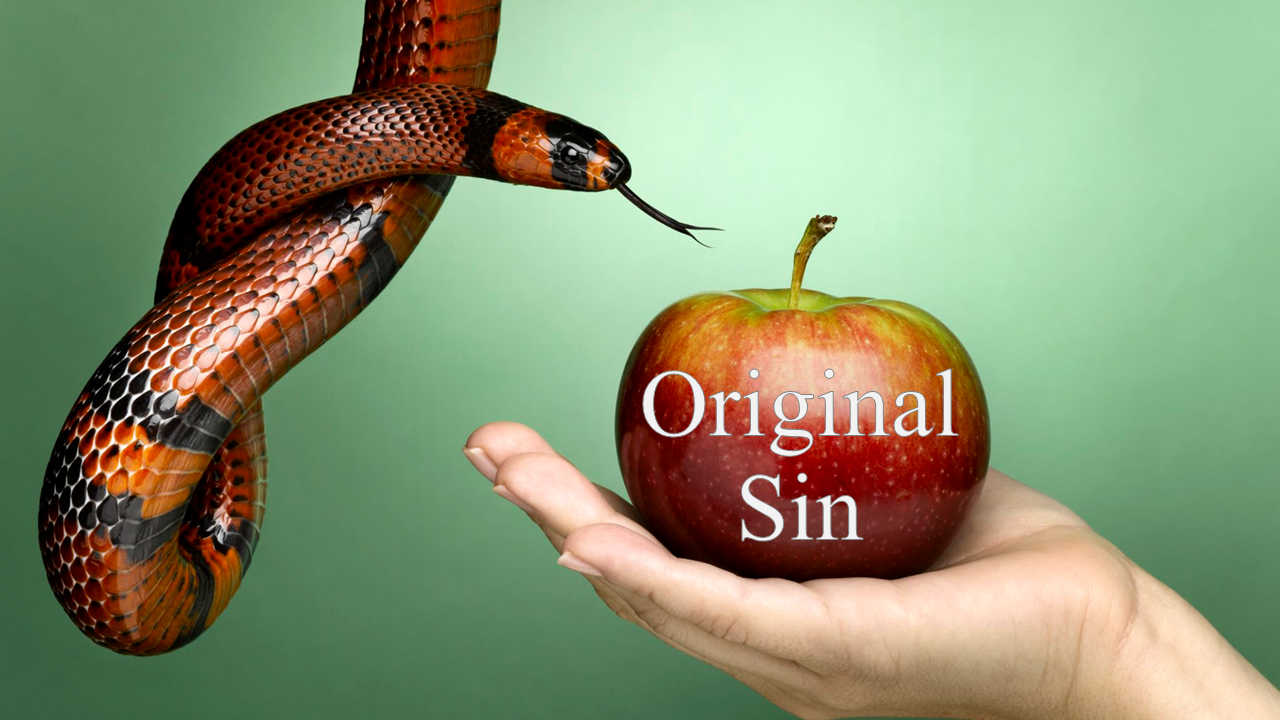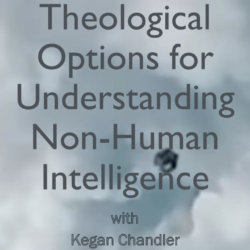This is part three of our series on original sin. In part one, Kegan Chandler discussed the history of Augustine’s doctrine of original sin, arguing that the whole idea is post biblical. Last time Jerry Wierwille responded to Chandler, explaining that we do have solid biblical grounding to believe in some form of inherited original sin based on Romans 5.12-21. Today, we put these two scholars in dialogue with each other.
In today’s episode we being by defining how Chandler and Wierwille understand original sin. Then Chandler lays out his case for a positive view of children in the bible, using Deuteronomy 1.39, Isaiah 7.15-16, Ezekiel 28.15, Isaiah 53.6, Matthew 18.3, Mark 10.13-16, and Romans 9.11, 4.15, 7.8. Next we consider Ephesians 2.1-3, a major text for believing all humans are fallen and sinful as a default.
Although we’ll have to wait until next week to get into Romans 5, this discussion helpfully elucidates two important views on original sin to help you think through your own position.
—— Links ——
- Part 1: 321 Origins of Sin (Kegan Chandler)
- Part 2: 322 Inherited Sin in Romans 5 (Jerry Wierwille)
- More podcast episodes with Kegan Chandler
- More podcast episodes with Jerry Wierwille
- You may also be interested in our 6-part Calvinism Debate or our series on foreknowledge and free will
- If you’d like to support Restitutio, you can donate here.
- Intro music: Good Vibes by MBB Attribution-ShareAlike 3.0 Unported (CC BY-SA 3.0) Free Download / Stream: Music promoted by Audio Library








What an excellent discussion so far. While I don’t adhere to the concept of Original Sin, I do think that the world needs healing and restoration. So far Kegan has defended his position well and Jerry can’t defend his position well, even Sean mentioned that one of Jerry’s responses was unsatisfying, yet honest. I don’t think Kegan should be criticized for going outside of “scripture,” which is where it seems Jerry wants to set his boundaries.
For what it’s worth, Rabbinic Judaism has established that children who aren’t bat/bar mitzvah age, and those who fall under חֵרֵשׁ Cheresh, which refers to someone who cannot hear, speak, or with other mental disabilities, are exempt for the obligations of the Torah. Likewise, many children in Judaism cut their teeth on Leviticus. This practice comes from the Midrash, Leviticus Rabbah 7:3, which states, “Children are pure; therefore let them study laws of purity.”
Of course within Christianity, you’re not going to give any credence to what Judaism has to say on the matter, but I find it aligns nicely with Kegan’s position.
I’m looking forward to the remainder of the debate. Best!
Since we are all considering the subject of sin, perhaps a variation on Kegan’s viewpoint may be of some value.
There are two primary categories of sin:
• the sin Adam committed when he disobeyed God’s command; and
• the sin that all men commit.
Each of these has consequences.
ADAM SINNED
When Adam sinned, there were two major consequences:
• he lost the privilege of having spirit (Gen. 2:17—“in the day”); and
• he lost the privilege of having access to the tree of life (expelled from the Garden).
The loss of spirit meant that he was separated from God—“dead to God” or “dead spiritually.” There was no longer a connection whereby God could communicate directly with Adam. This is like a person being physically dead. The living can no longer communicate with them—having taken his last breath, the person is “dead to the living.” Being spirit-less means that Adam and all his progeny were now only body and soul.
Besides losing spirit, Adam lost access to the tree of life, which meant that Adam became subject to physical death, as are all his progeny (Gen. 3:22, 23, 24). This is the first death that every man is subject to as a result of Adam’s sin. This first death may be hastened at God’s discretion (the Flood, Sodom & Gomorrah, etc.) or by man’s bad choices. Being expelled from the Garden also meant that spirit-less Adam and all his progeny were now living in a world “run” by wicked spirits (2 Cor. 4:4; Eph. 2:2).
ALL MEN SIN
All men commit sin (Eccl. 7:20; 1 Kings 8:46; Rom. 3:23). All men will experience “death” in some form or another or to one degree or another because of their own sin, but all are subject to the second death based on the sins they have committed (Rev. 20:11, 12, 13, 14, 15). (Those of faith will be spared the second death despite their sins. Free will, the ability to choose, is intact but body and soul is “weak.”)
God built certain faculties or capabilities into the body and soul of man, which He intended to be used for good. Take desire. A consideration of the Hebrew and Greek words for desire reveals that “desire” and “lust” are not two different capabilities. That Eve could desire wasn’t the problem, but that she turned her desire towards that which God had prohibited. (No different for any man today, James 1:14–16.)
MAN’S CONDITION, STATE, STATUS
Man is born subject to two deaths (two “death penalties” for sin). Man is born only body and soul into a world run by the devil. In and of himself, no man can escape these two deaths or by his own efforts get spirit (establish a spiritual connection with God and assume the spiritual authority that Adam abdicated).
ESCAPE/REMEDY
The only escape from the two deaths and the only remedy for being spirit-less is a Redeemer, a Savior—Jesus Christ.
For the record, women sin too.
A very needed debate. Thank you.
Here is a very simple thing to consider:
1. Adam was not created with any kind of a “sin nature” – regardless of how you want to define that term.
2. Adam sinned.
3. Therefore a “sin nature” is irrelevant as to whether or not a person is able to sin.
4. If Adam could sin without having a “sin nature”, children are also able, at some point, to sin without having inherited a “sin nature”.
I believe that there are contributing factors that encourage sin, such as our fleshly desires (this is what got Adam), the sinful world around us that encourages sin, and even our own mortality (a short life-span). However, a “sin nature” is none of those, and as such should be considered as a last resort, if at all, as a source of sin. However, most current theological systems presume the “sin nature” to be the very first thing, as if we are compelled by it and under its full control, part of our design as is eating, sleeping, and other necessities of life, and I believe that is plain wrong as well as unbiblical.
If all babies or children under the age of accountability are automatically saved, why wouldn’t believing mothers kill them, -guaranteeing- their salvation and everlasting life, rather than take the chance that they might grow up to be unbelievers?
Not a very pleasant mind picture, perhaps, but I think it makes a point.
I believe our sin nature is a real thing, and that all men descended from Adam (everyone) has it. I think that 1 Cor 7:14 is sufficient to prove that babies are not automatically saved. Also, I believe that when Jesus said that people are to become as little children to enter the kingdom, he was not referring to a state of sinlessness, but to be meek, humble, teachable.
I appreciate your interviews, Sean. Informative and fair.
Because murder is sin. Because they would be taking away a human life and, consequently, all of the work that person could have done for the Lord, if that person had lived.
Let’s follow the logic of your question a bit further: If all believers in Jesus Christ are saved, why shouldn’t all believers die right now instead of continue living and taking the chance that they might forsake the faith?
After all, Peter warned in 2 Peter 2:20, “it would have been better for them never to have known the way of righteousness than, after knowing it, to turn back from the holy commandment that was passed on to them.” (see also Hebrews 6:46, 10:26-36; Romans 11:22)
Yet, no rational person would argue that it is better for Christians to die than to live! That is a preposterous notion, yet it is where the logic behind your question leads, if taken to its logical conclusion. Even the Apostle Paul pondered this in Philippians 1:21-26, but his conclusion is clear: even if it would make sense for him to die from the standpoint of pure utilitarian logic, nevertheless it is better (and morally right) for him to continue living in order to complete the work God has called him to do.
We live because God has a purpose for our lives. God has a purpose for the unborn child too. We live because we are faithful to the work God has called us to do on this earth. God has a calling for the unborn child too. (see Jeremiah 1:5, Isaiah 49:1, Galatians 1:15)
So this idea that if the unborn are saved, that somehow justifies abortion – that’s like saying that because Christians are saved, it’s OK to kill Christians. That is neither correct nor logical.
The fact that God will make every injustice (e.g. the murder of an innocent child, or the murder of a Christian) right in the age to come, does not justify the injustice. As Christians our morality comes from the word of God, not from cold utilitarianism. It is always wrong to kill innocent life.
By definition, Jerry’s view and those like it would make abortion a moral position.
And Kegan’s “inherited sin” view doesn’t properly account for those who are redeemed apart from the Law, as he repeatedly alludes to.